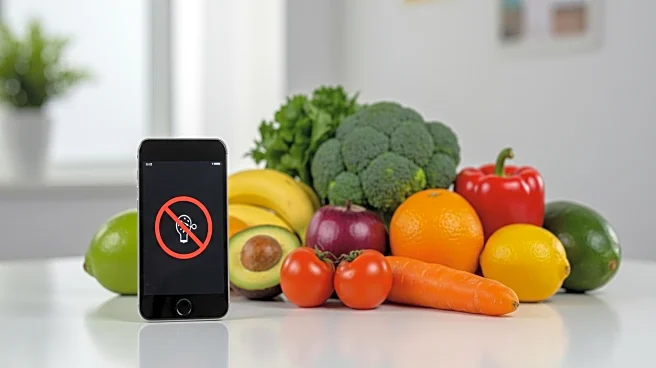What's Happening?
The Advertising Standards Authority is set to enforce new regulations on influencer advertising of less healthy foods (LHF) starting January 5. These regulations aim to restrict paid promotions of products falling within 13 LHF categories, particularly targeting content aimed at audiences under 16. Influencers will be prohibited from naming or showing recognizable products in paid ads, and gifting will be considered a commercial relationship, thus non-compliant. Organic posts are allowed but cannot be boosted with ad spend. Brands with fewer than 250 employees are exempt from these rules. The industry is encouraged to comply with these regulations from October 1 to avoid fines and reputational damage.
Why It's Important?
These new regulations represent a significant shift in advertising practices, particularly affecting the influencer marketing sector. Brands and influencers must navigate these changes carefully to avoid penalties, which could be as high as £250,000 or 5% of business turnover. The restrictions aim to protect young audiences from exposure to unhealthy food promotions, aligning with broader public health goals. However, the rules also pose challenges for brands heavily reliant on influencer marketing, potentially impacting their advertising strategies and revenue. Influencer agencies are tasked with educating clients and ensuring compliance to safeguard their partners' careers.
What's Next?
As the regulations take effect, brands and influencers will need to adapt their marketing strategies. Agencies are exploring creative solutions to comply with the guidelines, such as focusing on brand sentiment and using out-of-category creators. The Advertising Association and other trade bodies are launching awareness campaigns to help businesses understand and comply with the new rules. The industry will likely experience shifts in ad spend as brands adjust to the new equilibrium, with a focus on innovative ways to promote products without direct references.











